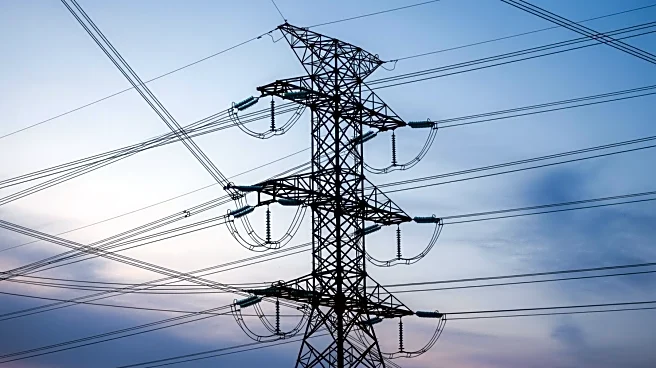What's Happening?
The U.S. Department of Energy (DOE) has proposed that federal regulators set rules for interconnecting large loads, such as data centers, to the transmission system. This proposal has sparked jurisdictional
concerns, as states traditionally have jurisdiction over retail load interconnections under the Federal Power Act. The National Association of Regulatory Utility Commissioners (NARUC) and state lawmakers have raised concerns about the potential interference with state regulatory processes. The proposal includes principles such as requiring new loads to cover network upgrade costs and conducting reliability studies for existing power plants serving new large loads.
Why It's Important?
The proposal could significantly impact the regulatory landscape for large load interconnections, potentially shifting jurisdiction from state to federal regulators. This shift may affect how large loads are integrated into the power grid, impacting reliability and affordability. The proposal aims to create a standardized process, which could streamline interconnections but also disrupt existing state-driven processes. Stakeholders, including grid operators and investor-owned utilities, have expressed concerns about the implications for resource adequacy and transmission investments.
What's Next?
Reply comments on the DOE's proposal are due by December 5, with a final rule expected by April 30. The Federal Energy Regulatory Commission (FERC) will need to address jurisdictional issues and consider stakeholder feedback. The outcome could lead to changes in how large loads are interconnected, affecting state regulatory processes and potentially sparking litigation. Stakeholders will continue to monitor developments and advocate for their interests in the rulemaking process.









